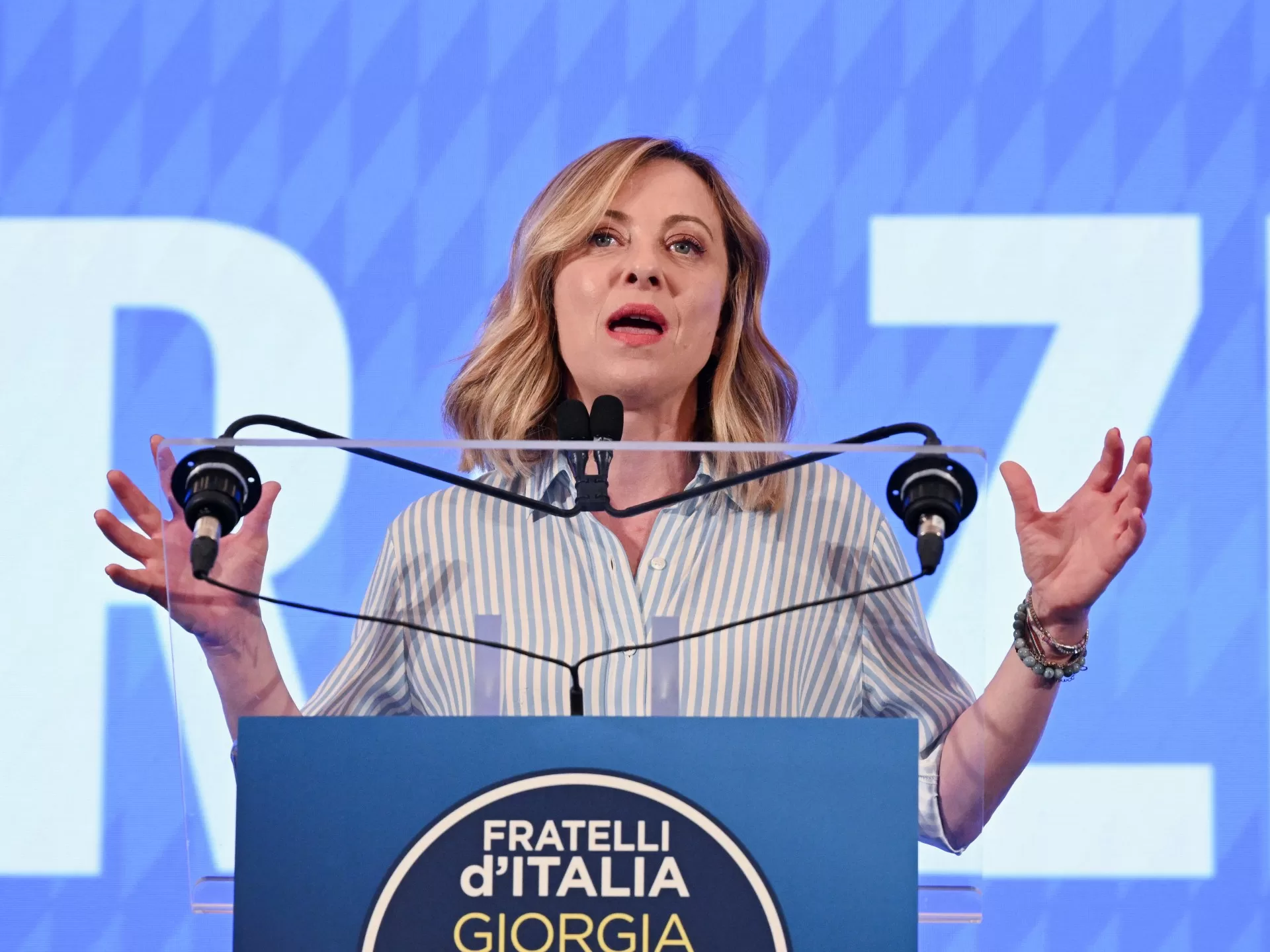Italian Prime Minister Giorgia Meloni is at the centre of a “snooping scandal” in which a bank branch employee at Italy’s biggest bank is alleged to have illegally accessed and “spied on” thousands of private accounts.
A clerk at Banca Intesa Sanpaolo has been accused of gaining unauthorised access to more than 3,500 accounts belonging to politicians, businesspeople, celebrities and athletes, violating privacy laws and threatening national security.
The bank clerk, Vincenzo Coviello, 52, said he was motivated by “curiosity” and was frustrated in his career. He told authorities he did not keep a record of the bank activity he had access to – which reveals the client’s whereabouts and other sensitive data – and denied sharing the information with anyone.
Meloni, however, has turned the incident into a national scandal, saying “pressure groups” seeking to drive her from office and to interfere with democracy were really behind Coviello’s actions.
So what really happened?
How were the accounts accessed and who did they belong to?
Coviello, a clerk at a branch in Bisceglie in the Apulia region of southern Italy, began his alleged spying activity in February 2022. For more than two years, he illegally accessed clients’ personal accounts 6,976 times, according to a police investigation.
His targets allegedly included Meloni; her sister Arianna, the coordinator of the secretariat of the governing party, Brothers of Italy; and the prime minister’s former partner Andrea Giambruno.
The long list of politicians whose accounts were accessed also includes Defence Minister Guido Crosetto, Minister for European Affairs Raffaele Fitto, Tourism Minister Daniela Santanche and President of the Senate Ignazio La Russa.
Coviello is accused of also spying on the financial affairs of the heirs of deceased Italian businessman and former Prime Minister Silvio Berlusconi as well as businessman Lapo Elkann, former footballer Francesco Totti and singer Al Bano.
What sort of information was accessed and what was done with it?
Coviello’s position within the bank gave him access to clients’ information, including the times and locations of cash withdrawals, online and card payments, and bank transfers.
The information obtained is sensitive and could be used to gain knowledge of a person’s whereabouts, contacts, business dealings, properties and debts.
This sort of information could have been downloaded, saved and sold on to business competitors, political opponents or a wide array of fraudsters looking to blackmail or otherwise intimidate politicians and celebrities. The dark web is one of the avenues investigators are still looking at to find out if any of the information was, in fact, sold.
However, Coviello has denied saving and sharing the information, arguing instead that he acted in the grip of a “psychological compulsion” for which he had sought professional help.
It is not yet clear whether the information was sold or otherwise divulged.
Is there a police investigation?
Prosecutors in Bari have opened an investigation. The clerk has been accused of violating privacy laws and threatening national security with unidentified accomplices.
Roberto Rossi, the prosecutor in Bari, said Coviello most likely acted with another person who commissioned him to access the files.
However, the clerk maintains that he acted alone. Italy’s Carabinieri police are combing through his finances to determine whether he has received any payments.
Coviello was fired from his post in August after Banca Intesa Sanpaolo launched an internal disciplinary action that uncovered evidence of his alleged illicit activity.
Why does Meloni say this is part of a larger plot to drive her from office?
Meloni charges that the snooping was an attempt to undermine her government, but the ongoing investigation has so far not produced any evidence to back up her claim.
“The pressure groups don’t accept having someone in government who doesn’t bend to pressure and can’t be blackmailed, so perhaps they try to get rid of them by other means,” she told the TG5 news bulletin. “But I’m afraid they won’t succeed in getting rid of me.”
The leader of the right-wing Brothers of Italy party said the politicians whose accounts were accessed were nearly all from her side of the political spectrum.
It is unclear if this was the case. Italian media reported that the search queries operated by the clerk appeared to be random and had targeted the accounts of people from across the political spectrum.
This is not the first incident that Meloni claims is part of a wider plot to oust her.
This year, Antonio Laudati, a magistrate, and Pasquale Striano – an officer in the finance police, the Guardia di Finanza, which is an Italian law enforcement agency that answers to the economy and finance minister – were found to have accessed files from the Anti-Mafia Investigative Directorate on the prime minister and members of her government with no prior authorisation.
The motives behind Laudati and Striano’s move are being investigated.
Interior Minister Matteo Piantedosi said these incidents raised the “strong suspicion of an attempt to alter the course of democracy”, but no such plot has been uncovered so far.
